Hiroyuki Miura (PLUSVoice, Inc. President and Representative Director)| Realize the “true communication”
2025.07.08
Deaf Volleyball Japan Women's National Team Coach
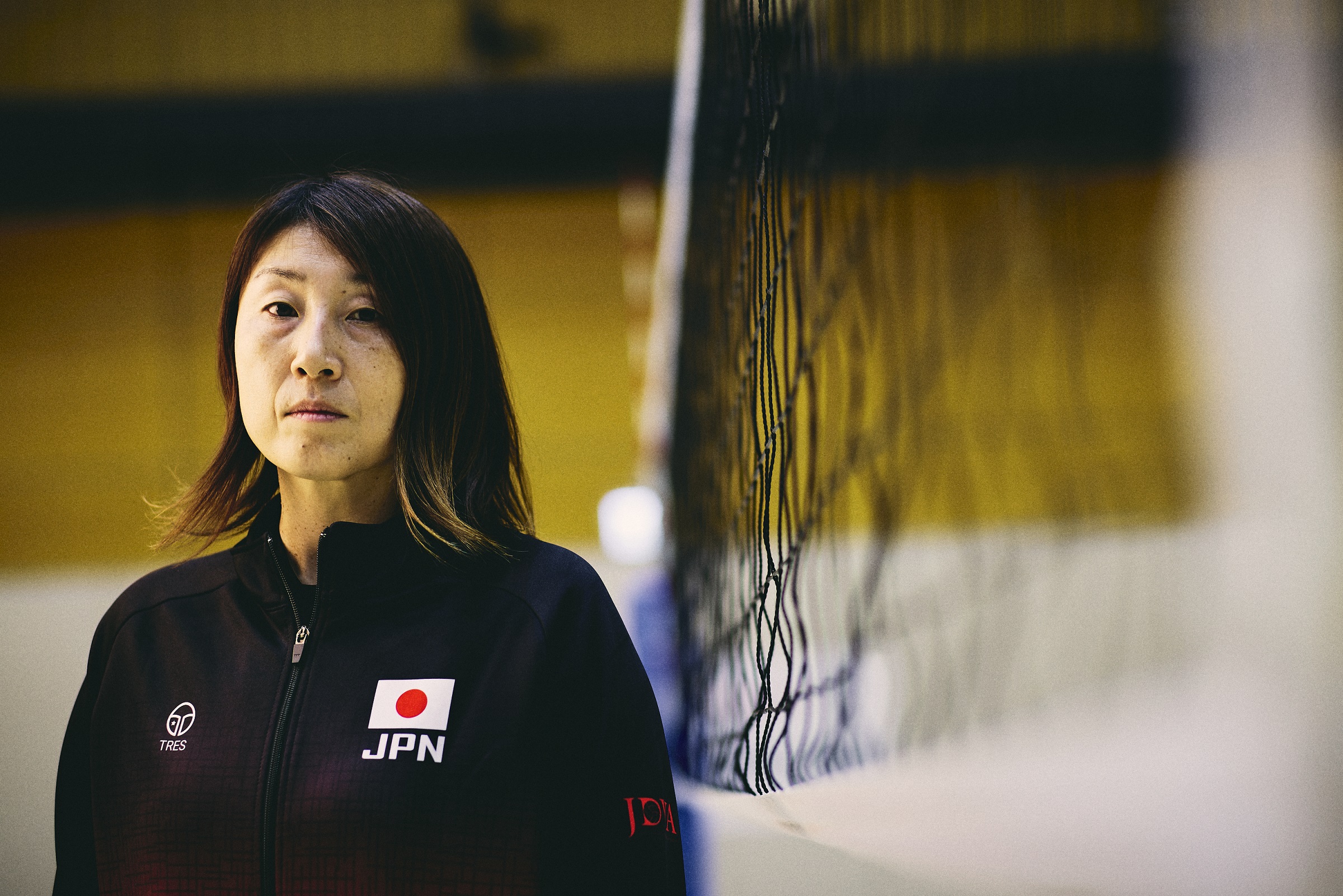
2024.03.18
Her matter-of-fact tone was truly impressive.
However, one could sense a definite passion behind it.
Miyuki Kano is the coach of the Japanese women’s Deaf Volleyball team,
Since taking over in 2011, she has led the team to a silver medal at the Sofia 2013 Deaflympics and a gold medal at the Samsung 2017 Deaflympics.
The coach’s coaching policy was suggestive, as she raised the level of the team with her outstanding skills.
目次
-It has been 12 years since you became the national women’s Deaf Volleyball coach in October 2011. Did you feel at a loss at first because you had no experience in coaching and also in the field of Deaf Volleyball?
Kano-san I wasn’t really concerned about Deaf Volleyball, but when I retired in 2011, I had to make a lot of decisions about my next career path and my personal life as well. My image was that I would join some team, go through coaching, and then step up and become a coach. I had zero coaching experience, so the most perplexing part was, “Am I the right person for this?” As for how I first encountered Deaf Volleyball, my friend Tatsuyuki Imai -san was the coach, and I was assigned to help him, but during a training camp I attended instead, Imai-san, who was in the hospital, became ill and passed away. Under such circumstances, it was decided that I would take over as coach.
-What was the most difficult part of coaching?
Kano-san In the beginning, I did not know the level of the team, and I had to reconcile the volleyball I was playing with what the players were doing. I went there because I was representing Japan, so there was a gap in that area. There were many times when I let the players practice what I had planned, but they could not do it. After accumulating such experiences, the players and I have now become accustomed to each other and are able to practice at a high level.
-On the contrary, what do you find challenging?
Kano-san The most important thing is that the players are serious. I think it is partly due to their dedication, but they definitely look at me when they listen to me, and they do their best to do what I say. I like that about them. From their point of view, if they turn their back on them, they just don’t get any information, so they don’t do that. The other part of me is that they respect the staff to a certain extent, and they would never be rude to me. (Maybe it’s partly because they are afraid of me…)
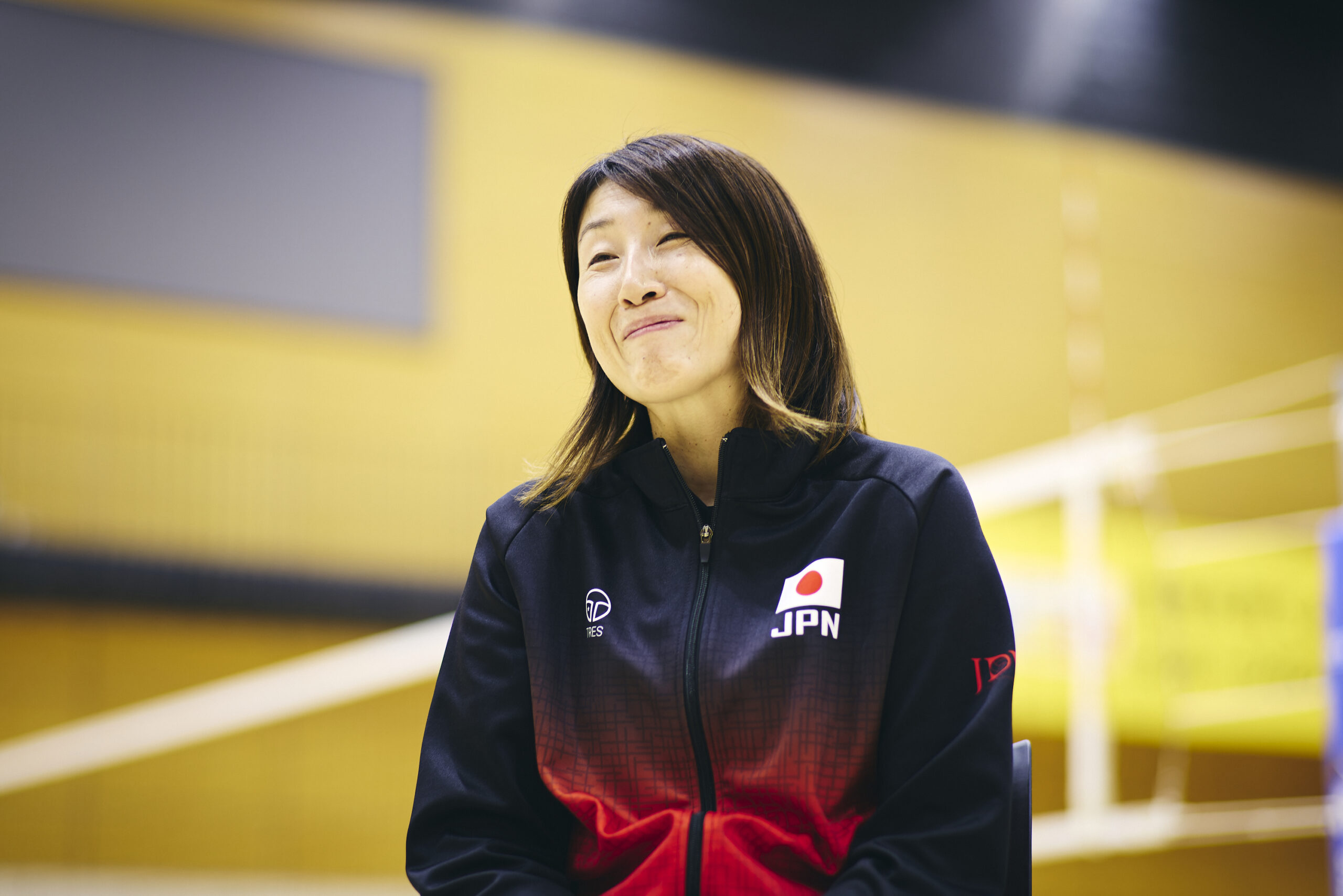
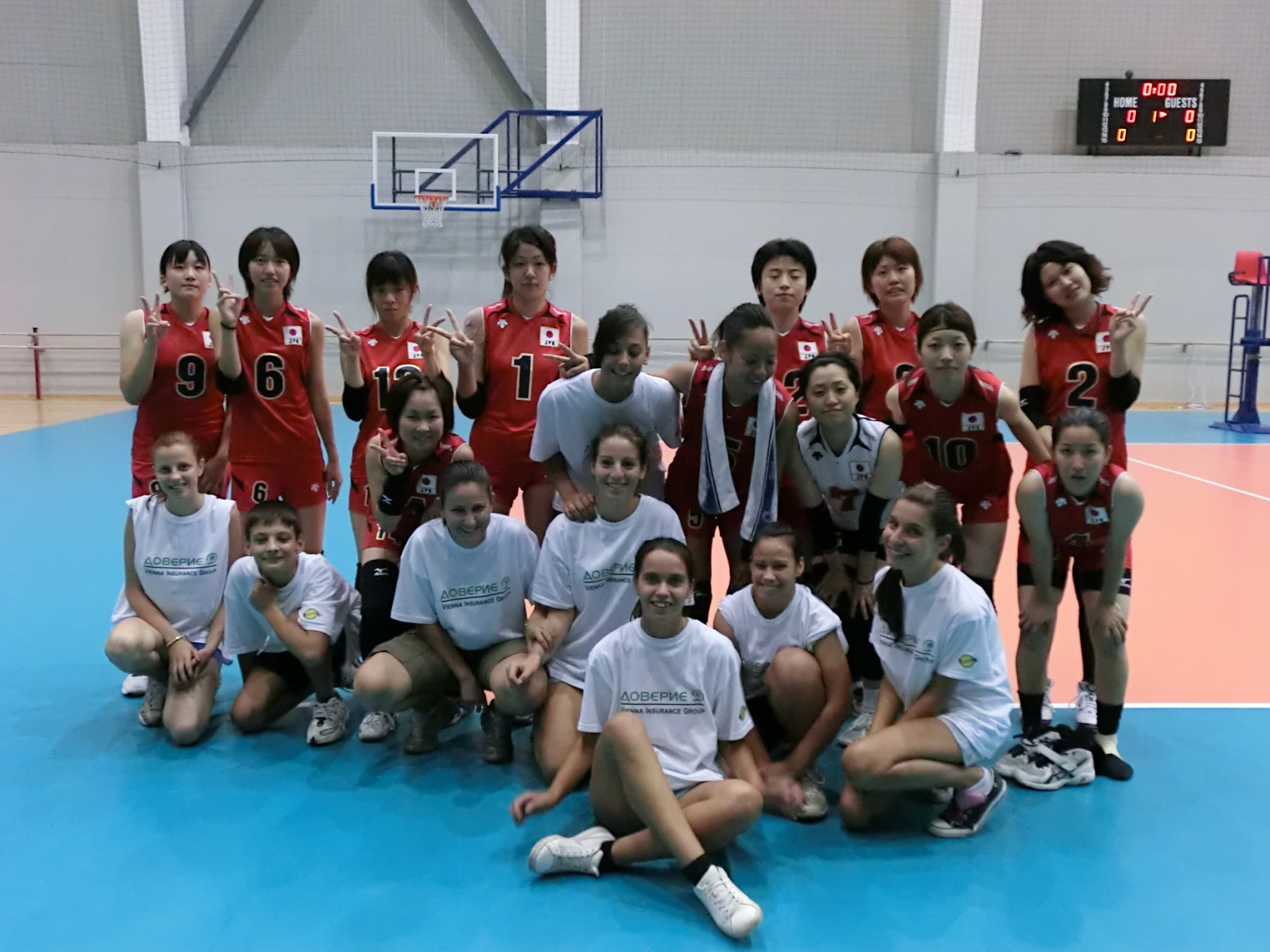
-What kind of policy did you adopt to strengthen the team?
Kano-san We don’t have anything too big (laughs). However, our goal is always to win the Deaflympics or the world championship, so I think practice is tough. Once you get used to it, you can do it, but some athletes have trouble keeping up at first. To be the best in the world, you have to practice the best in the world, and you have to have that kind of mentality. It is natural to be motivated. It is also natural to chase the ball until the end. It is meaningless if you let your hard work end only within yourself. The staff selects players with this in mind, as they are now able to properly show such efforts.
-Less than two years after taking office, you led Japan to a silver medal at the Sofia 2013 Deaflympics. Looking back, what do you feel the competition was like?
Kano-san At the Sofia 2013 Deaflympics we lost to Ukraine in the qualifying and the final, and at the last Cassius do Sul 2022 Deaflympics we lost to Ukraine in the qualifying. Since I became the coach, we have only lost to Ukraine at the Deaflympics. In Sofia, objectively speaking, there was a gap in ability between us and Ukraine, but the players worked very hard, so it was a matter of my skill that I could not let them win. The United States, which we played in the semifinals, was also a strong team, and I thought it would be tough in some cases, but we were able to beat them, which was significant. It was a match in which we were able to follow our tactics, so that alone was a real gain for us. I wanted to let them win the gold medal, but I think we were able to show what we had in the tournament.
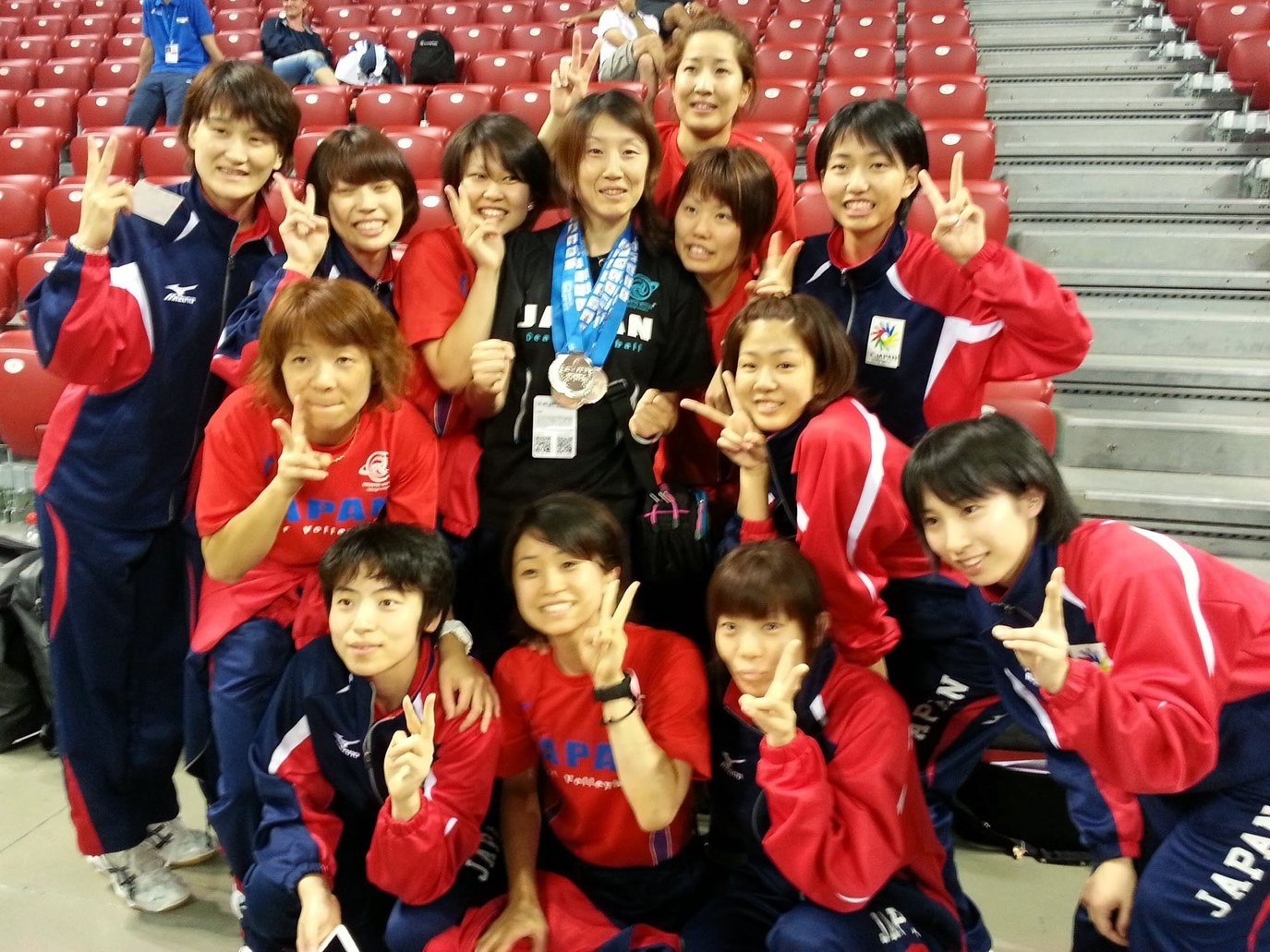
-Japan won the gold medal at the Samsung 2017 Deaflympics. You were overwhelmingly strong, winning all your games in straight sets.
Kano-san The older players were very patient. Many of the younger players also played in the games, and they are now the mainstay of the team, but at that time they were in high school. Children in that age group are still unstable in some respects. They are trying their best, but they have ups and downs in terms of technique and mentality. The older players would say, “Why are the younger ones like that? ” And so on. Well, I’m sure we were the same way (laughs). So even during the tournament, they would say to me, “I want you to do something a little more like this (for the younger players)”. But what do you think would happen if I said that? They would say, “I think they will shrink and not be able to do it…,” and I would say, “Well, I’ll stop then.” (Laughs.) While talking about such things, I tried not to say too many details because I wanted the young players to be able to stretch themselves.
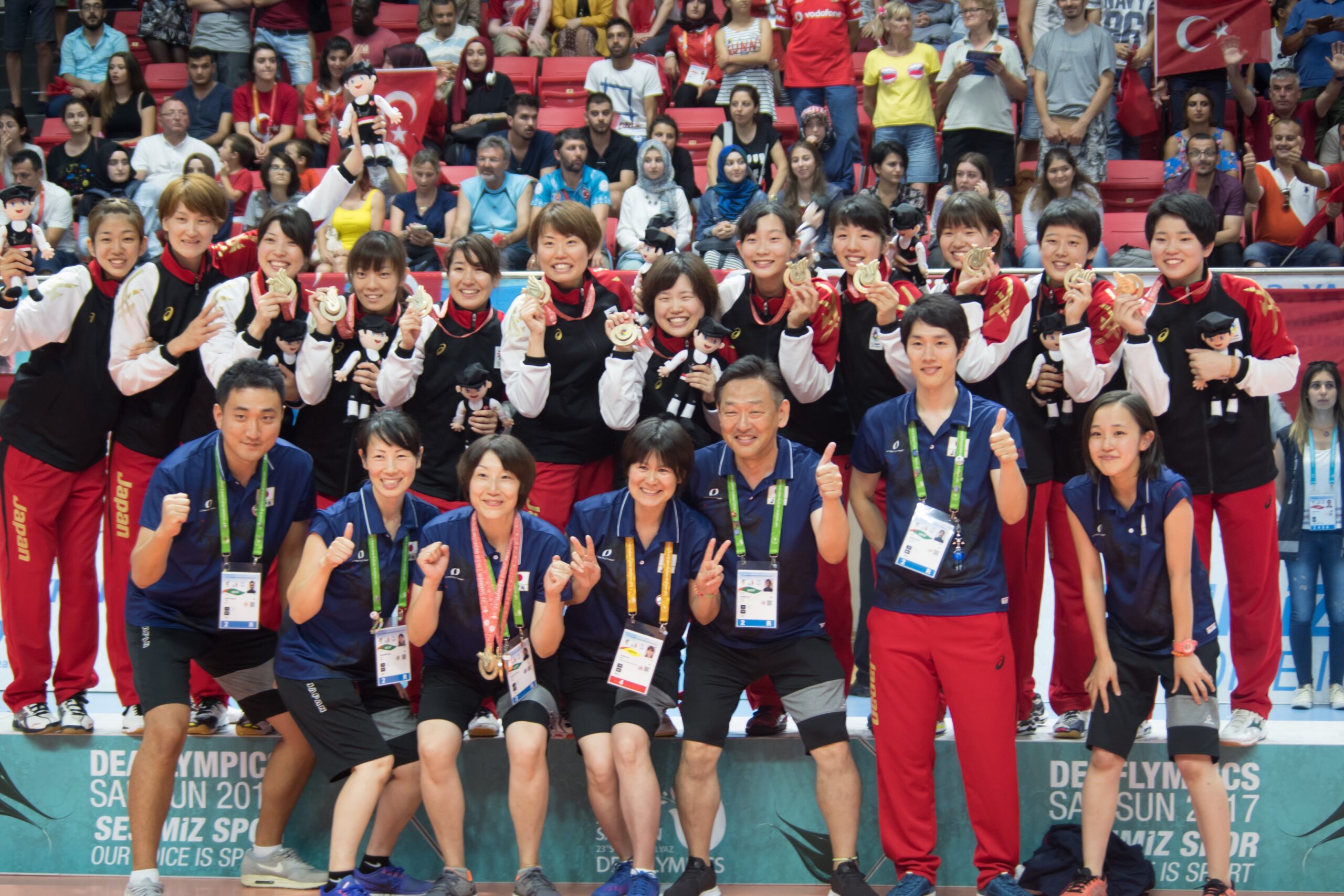
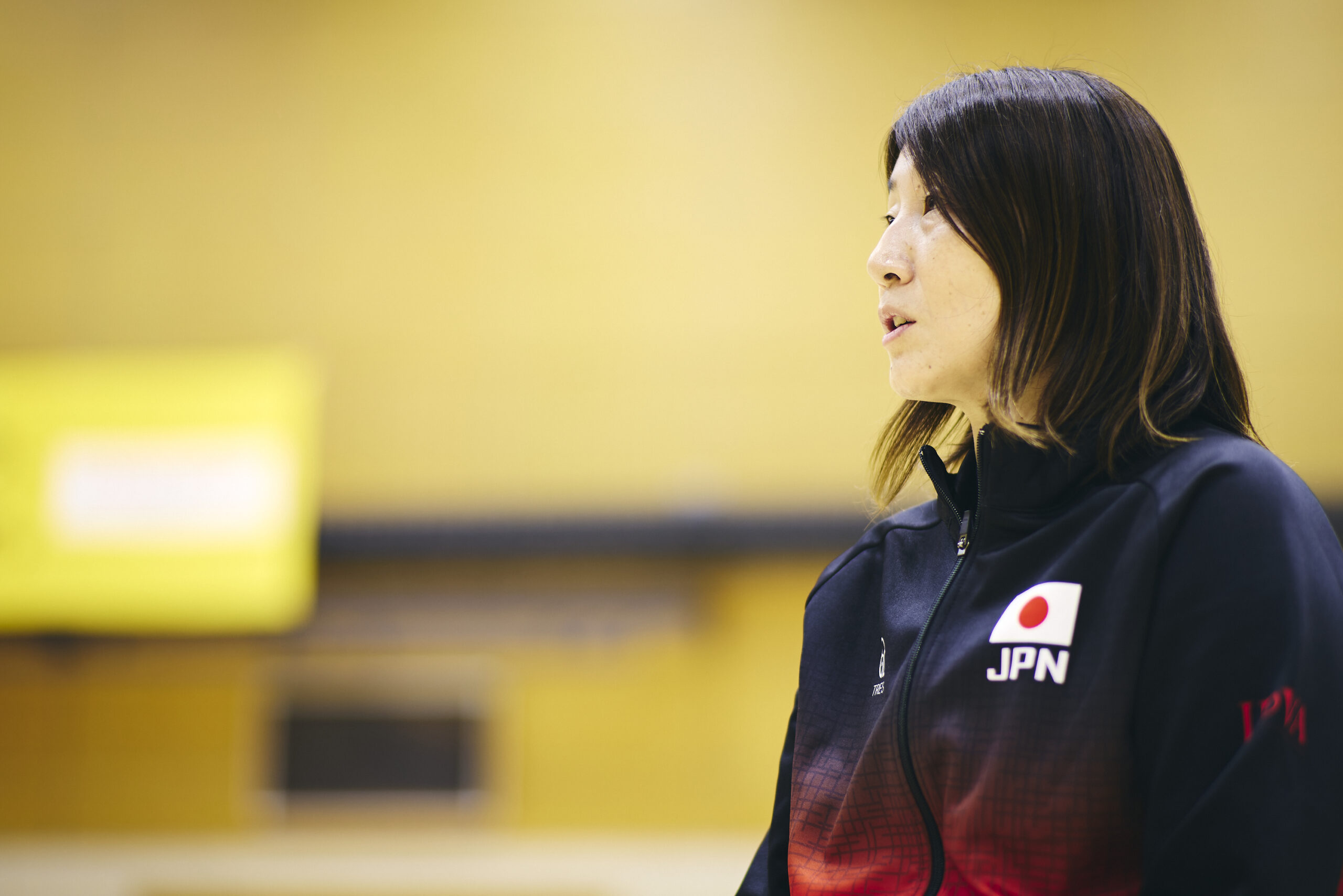
-What do you say to the players at the games?
Kano-san If the players are floating, I will tell them to “calm down” or “concentrate,” but if anything, I think it is better to give them hints on how to play. When you don’t know what to do is when you are in the most trouble. Rather than being told to “go for it,” I think it would be more helpful for the players if I said something specific, such as, “Where your opponent is available,” for example. I try to be conscious of saying such things.
-How much do you yourself care about the result?
Kano-san As a coach, I want to let the players win. I also want to win as a team. But personally, I don’t get that much ups and downs just because of wins and losses. Of course I am happy and moved when the team or players win, but I also believe that the process up to that point is just as important. Of course, in order to win a game, I make strict demands during practice. Sometimes I think this is the time for mental training, and sometimes I push them too hard. However, I would like to separate the mentality from the guts.
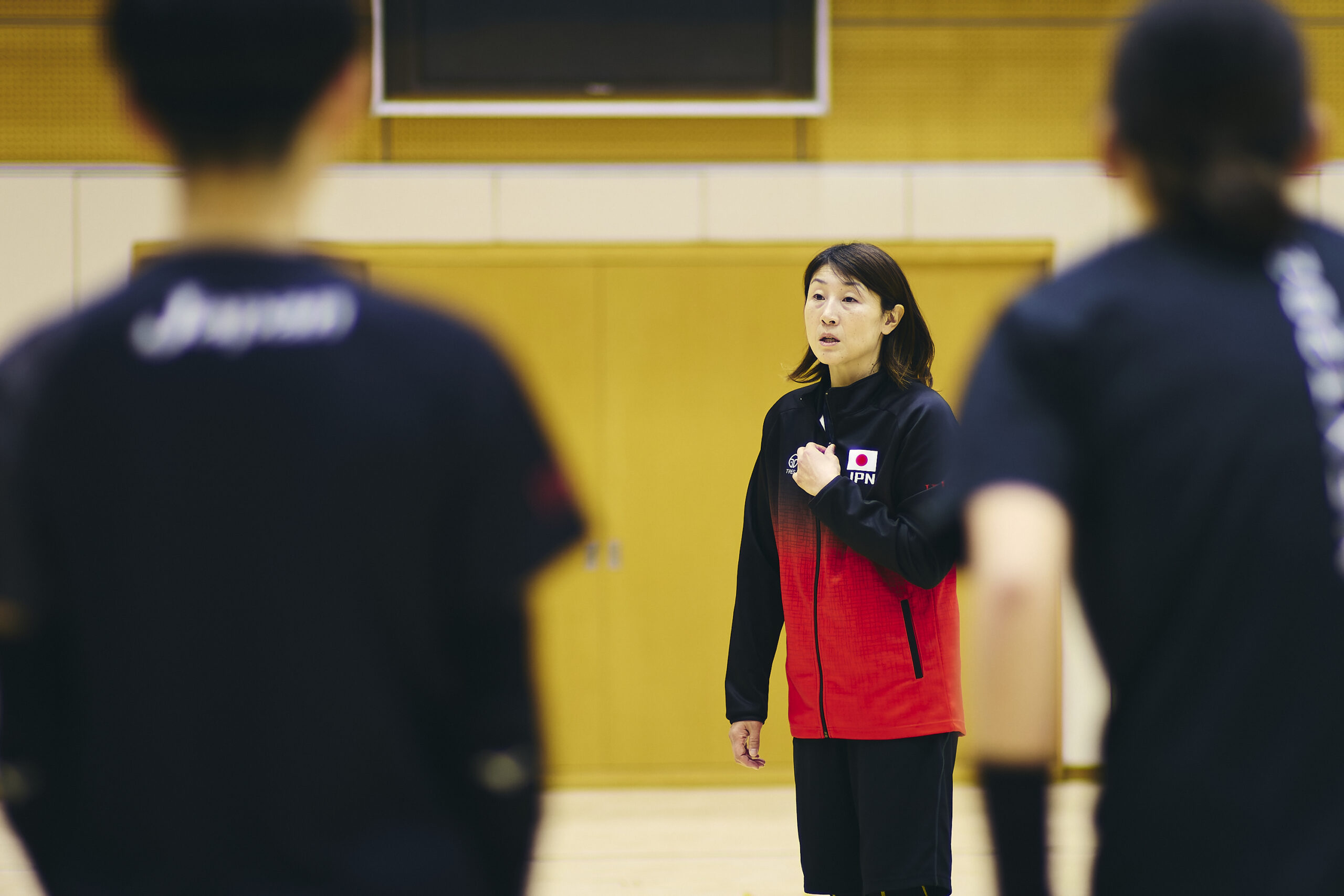
-You mean that spirituality and gut feelings are not similar.
Kano-san That’s right. We practice creating situations that push them mentally. For example, we put them under pressure by saying, “If you miss one more shot, you will lose”. But we don’t push them until they hit 100 shots and collapse. On the other hand, in training, we build a strong body by doing our utmost to raise the bar one step higher, so there are times when we make them do things with a bit of guts, but we explain the purpose of the practice and training beforehand and make them do it.
-When I listen to you, I feel that you place importance on asking questions and making people think once first, rather than telling them “do this” when instructing.
Kano-san I do this for players who have reached the point where they can think for themselves. However, there are some players who do not. It is difficult to think without a base, so we first have players who do not have a base have resources.
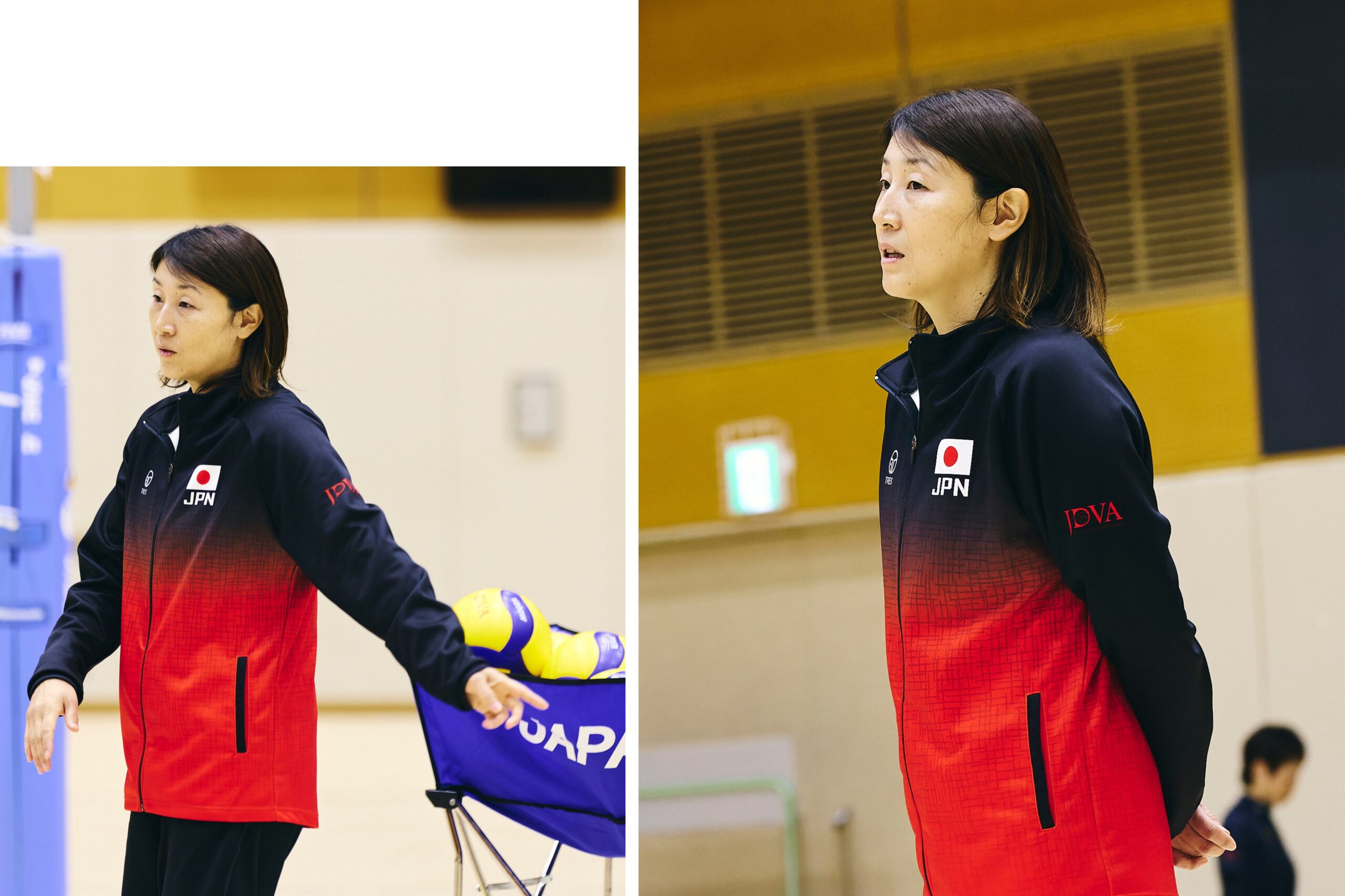
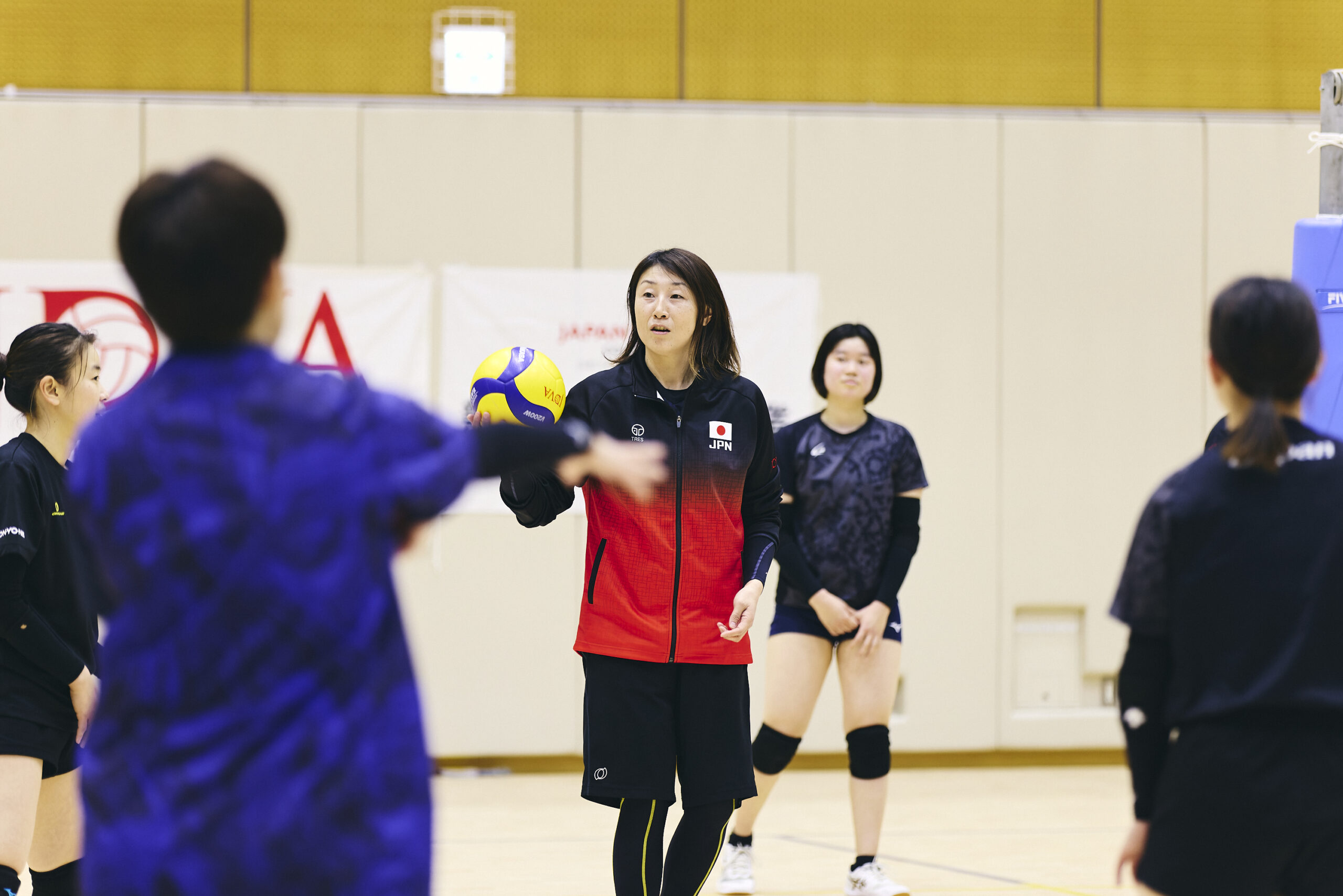
-What are some of your core ideas and experiences in coaching?
Kano-san Not to be too particular about any one thing is to some extent a commitment. I don’t basically say, “This is the way it has to be.” I have seen many different coaches when I was in the field. When I started playing volleyball, our coach at junior high school was a female science teacher who had no volleyball experience at all. But she was very dedicated and was there for morning practice even before we were there, and I liked her.
Then I met many coaches, but the first and the last ones left a lasting impression on me. The last one is Masayoshi Manabe, the current national team coach. They are completely different types, but I liked my first coach as a person because she worked hard, and I learned a lot of things necessary for playing volleyball from him. I have seen many different coaches and have adopted what I liked about them.
-What did you like about your middle school teacher?
Kano-san When I think about it now, I feel like she was standing in the same line of sight with us. She threw the ball as hard as she could, just because she had no experience in competition herself, and she let a few things slide (laughs). It was like she had never seen a big, promising-looking athlete like me before, and she took me to other coaches for practice and games because it was hard for her to teach me herself. I found out later that she had bowed down for me herself and asked other coaches to teach me.
-What do you think is great about Manabe-san?
Kano-san We worked together at Hisamitsu Pharmaceutical, and the first thing he taught me was to be professional in volleyball as a job. I think that he was close to older players like me at that time, and respected me as a person. As a coach, I have the image of not doing things on his own, but rather organizing the organization and making each individual responsible for building the team.
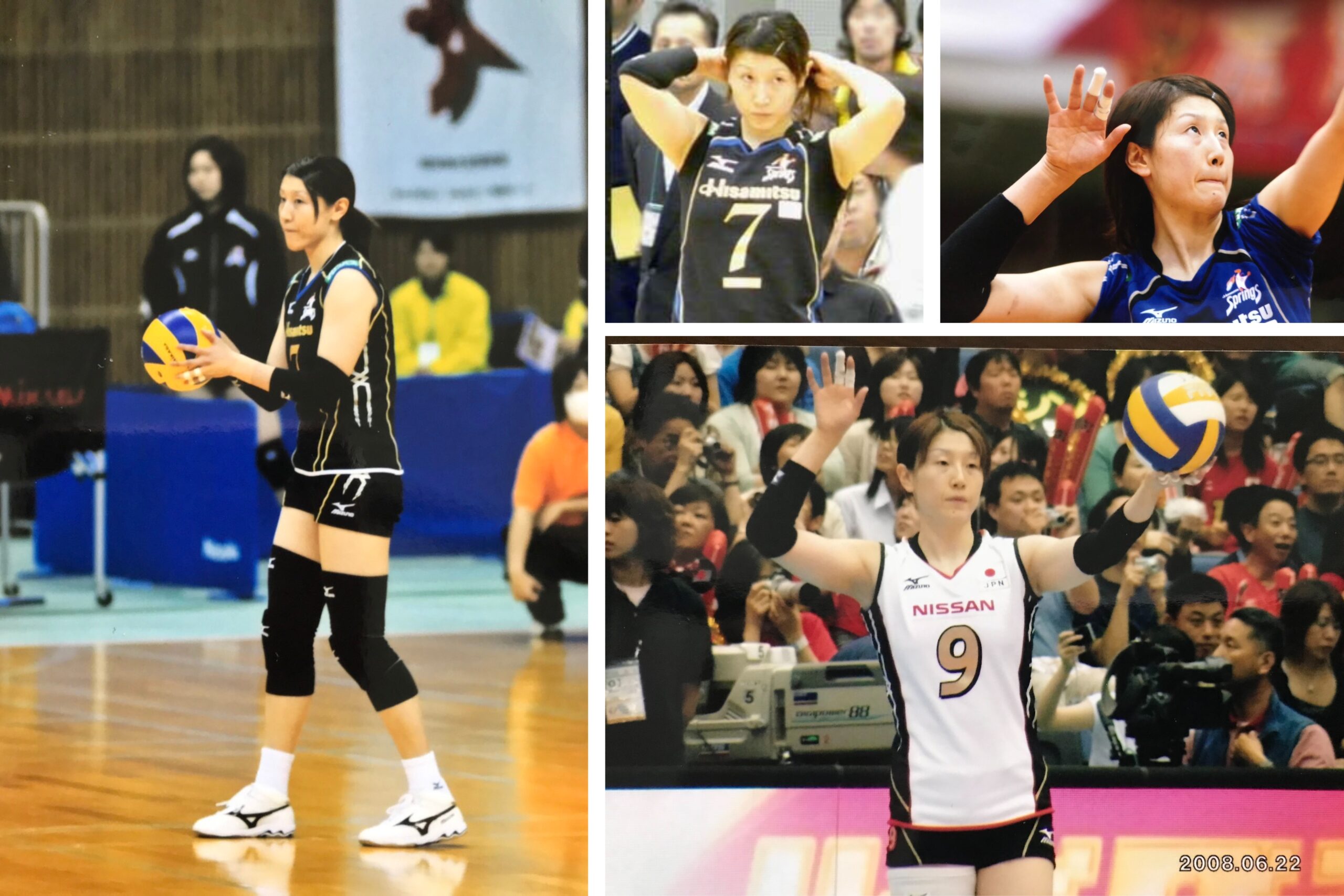
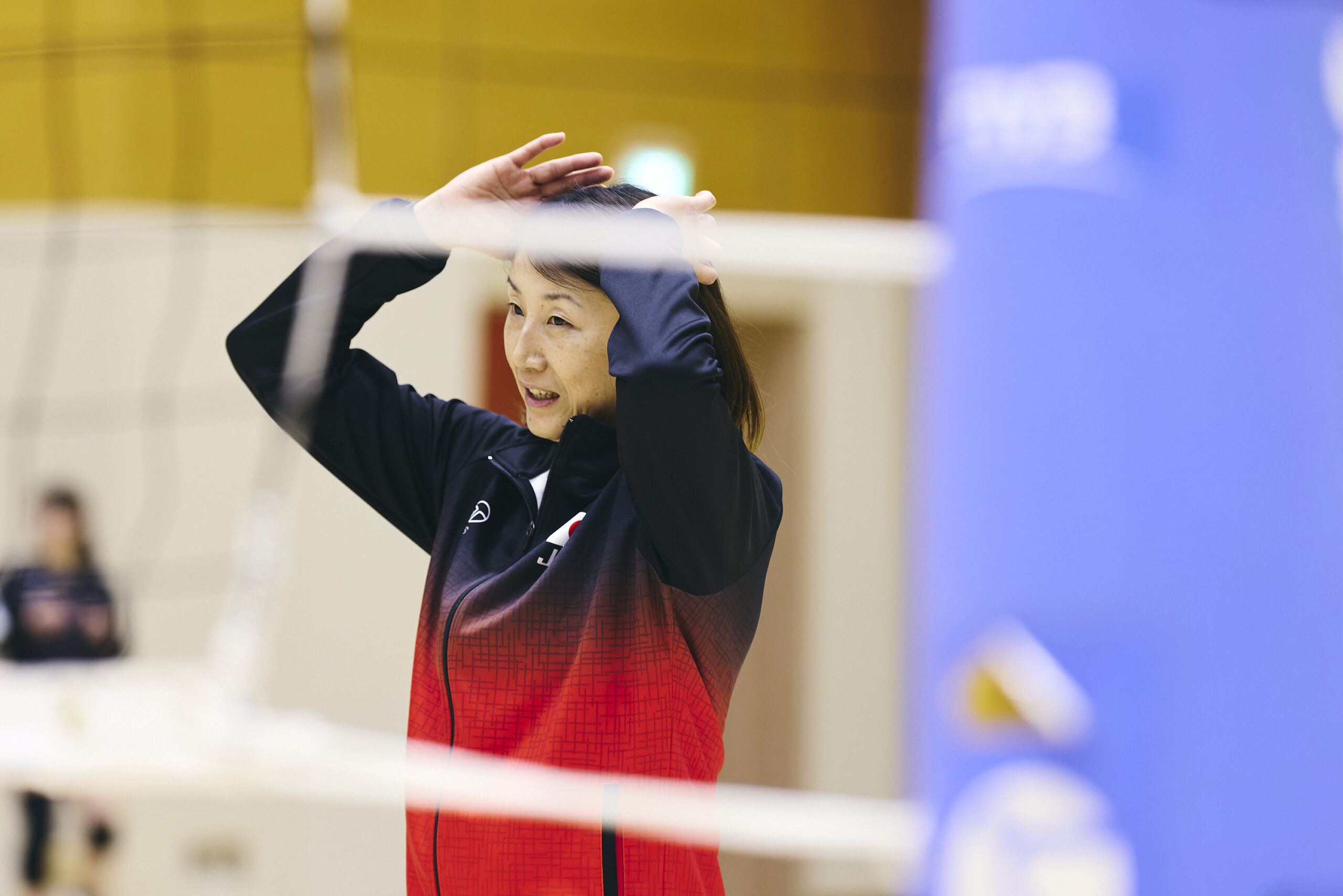
-Which type of person are you?
Kano-san I am the type of person who keeps a reasonable distance from players. Of course, I talk to them normally, but I try not to communicate with them personally. I am not a member of the group line for all players. Managers and trainers are on the group line, so I get information from them.
In my opinion, I want them to solve what they can solve by themselves. I am the last to know. For example, if the players have a fight with each other, if they resolve it, that’s fine, and if staff members come in, it may become more complicated, or they may look at it that way. I try to have them resolve what they can by themselves.
-What is the Deaflympics like for you?
Kano-san The basic premise is that I am a volleyball coach, not a hearing impairment specialist. Just because the team I am coaching now is a Deaf Volleyball team, even if this is a team of students or moms, I believe that it is my job to teach and build a team that best fits the needs of the team there.
The Deaflympics is the goal of the athletes, and we want to let them win. I really want it to be a life-changing event for the athletes but winning a gold medal at the Samsung 2017 Deaflympics does not mean that their life has changed a lot. Winning a gold medal at the Olympics may change your life, but I personally don’t think the Deaflympics have gone that far. I believe it is my job to change that.
-What do you want to do with Deaf Volleyball and Deaf Sports in the future?
Kano-san Since I started coaching, I have learned about a world I never knew existed. To be honest, I was rather full of Volley, and there were many aspects I thought I knew. But in fact, it is different. When I got involved in Deaf Sports and Deaf Volleyball, I learned many new things. I have learned a lot of new things through living and playing volleyball with the athletes. I am not a specialist in the field of hearing impairment, so I hope to be able to communicate these things to those around me as a member of the public. All Deaf Sports athletes have potential. If we can create a place and environment where they can play properly, I think they have a chance to win medals at the Deaflympics in more events.
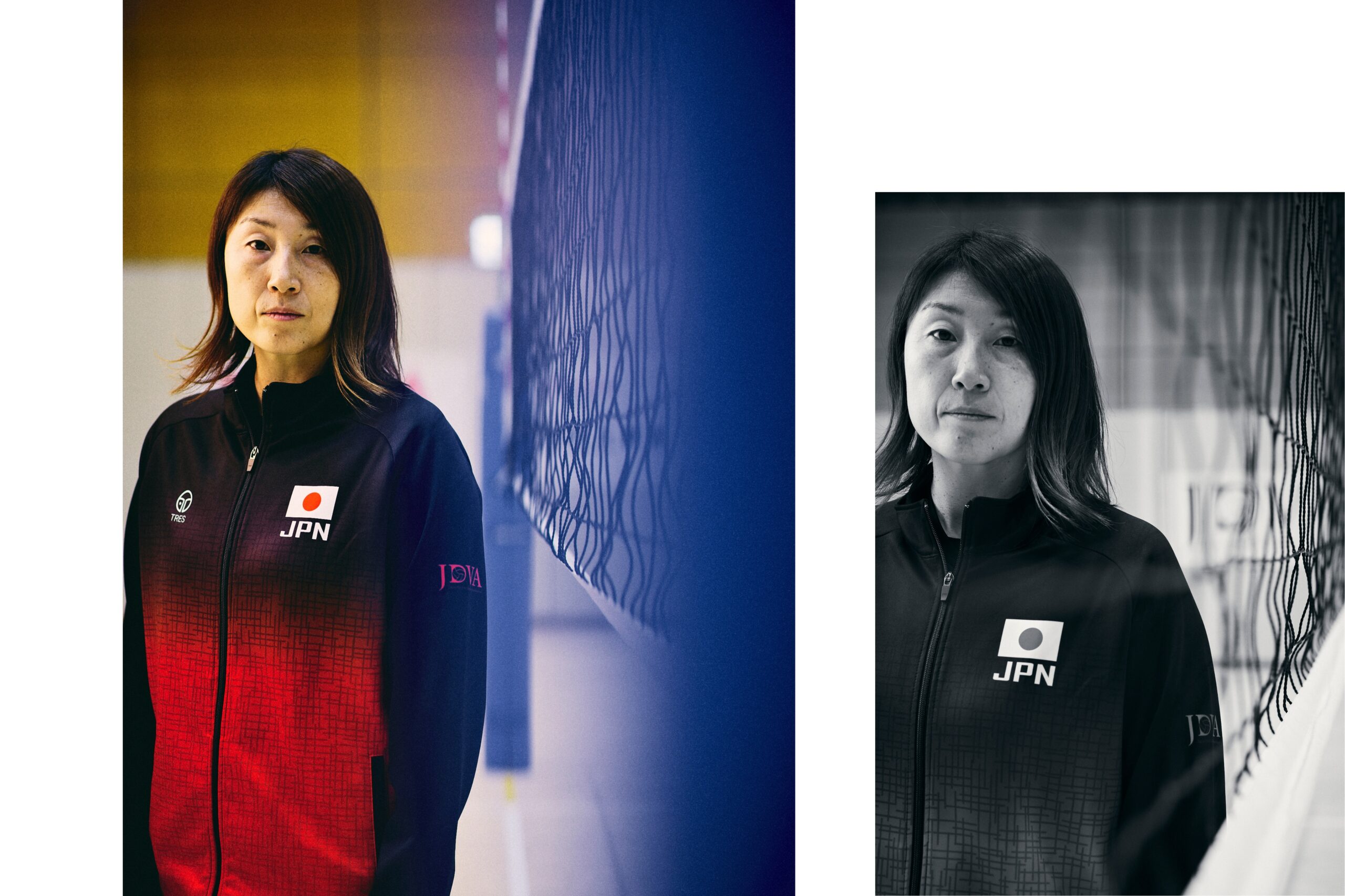
-What are your goals for the Tokyo 2025 Deaflympics?
Kano-san Of course we want to achieve a gold medal result, but we also have the goal of wanting our athletes to look at us and think that they can do it, too. The players work really hard, and I am sure that their attitude of biting down on the ball until the very end will have a positive impact on everyone. I think their enthusiasm and desperation are as high as those of the Japanese national volleyball team, so I would like you to see that. I take it for granted that I am with these girls, and I think that is an amazing change. Normal in my mind is to spend time with them and talk to them. If everyone was like that, there would be no need to make distinctions, and I hope that will be the case in the future.
-Finally, please give a message to our readers who are looking forward to the Tokyo 2025 Deaflympics.
Kano-san As I have said to the players, I believe we are doing this to support you, not to have you support us. Of course I would appreciate it if you would support us, and I would ask you to support us. But on the other hand, there is a part that does it so that people will see that and think that I will do my best, too, so I want to convey that part seriously.
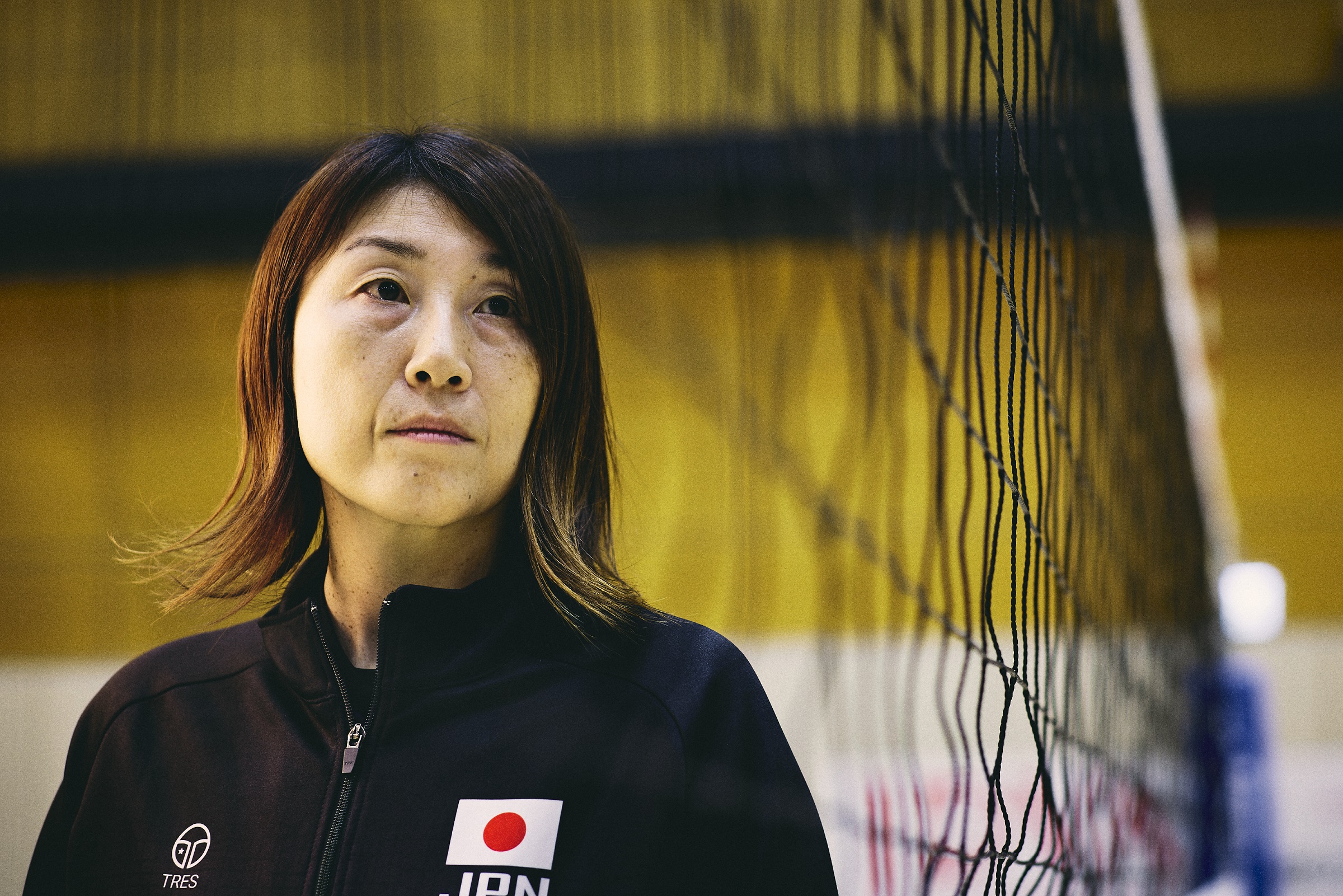
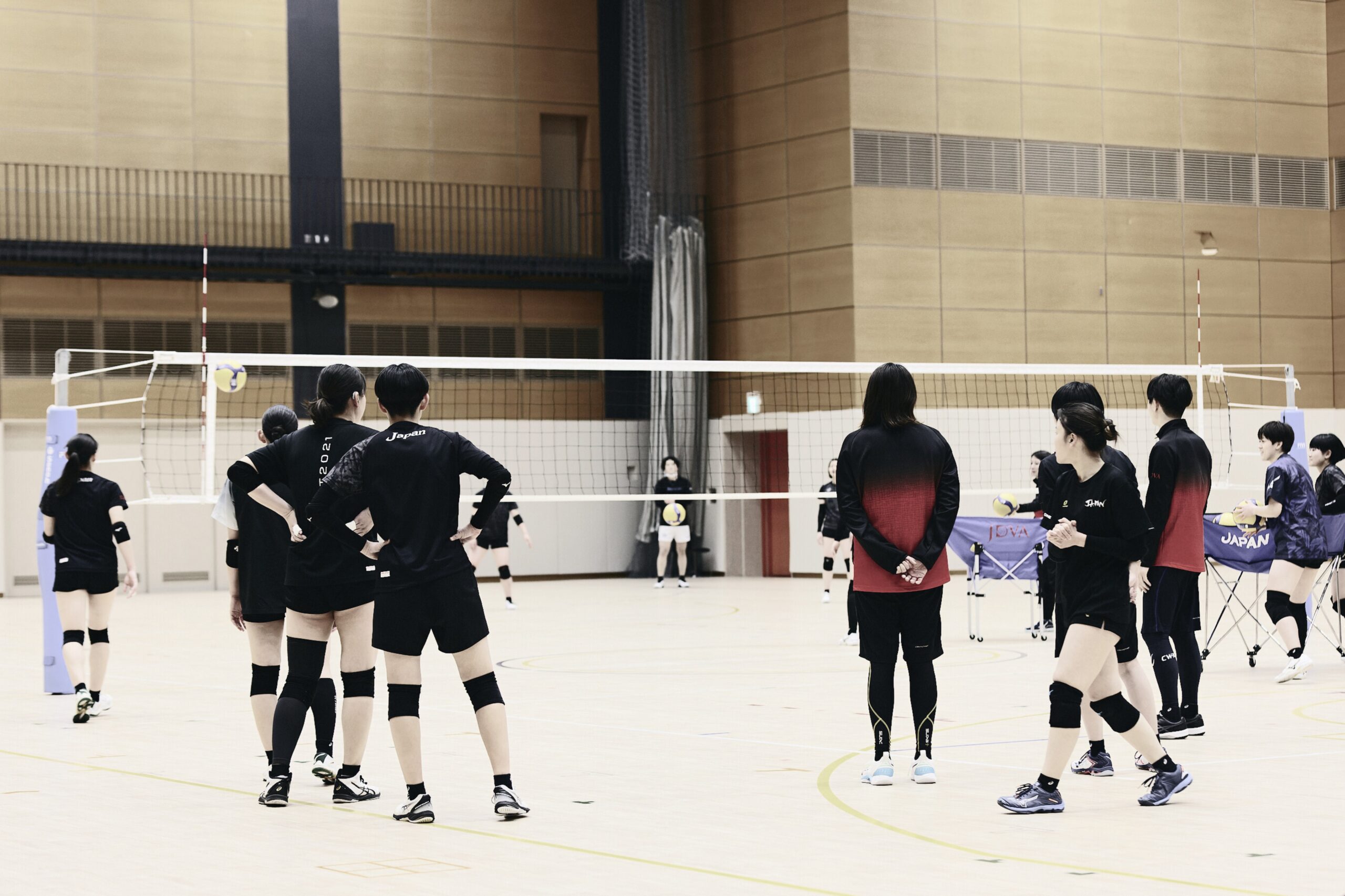
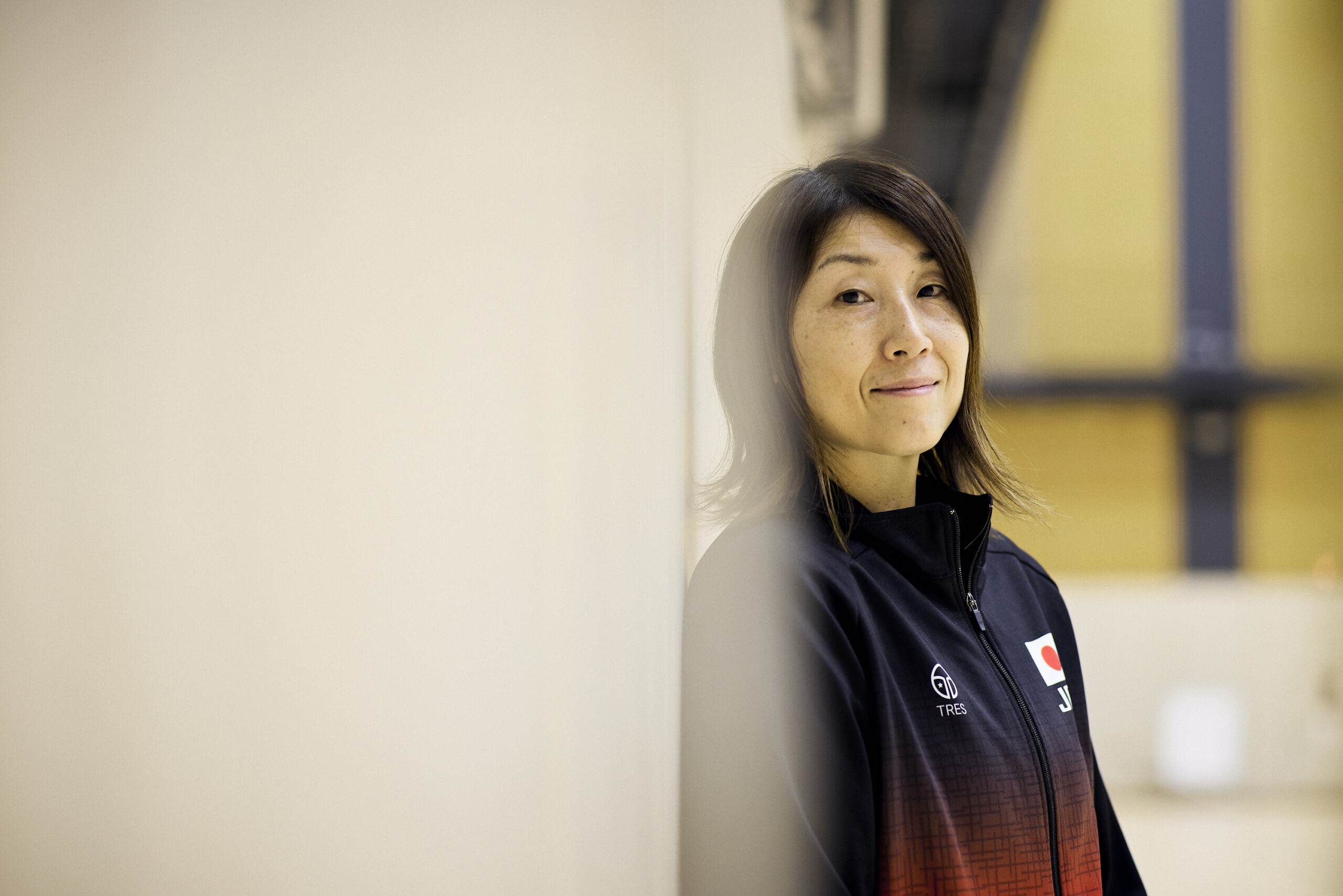
Miyuki Kano (Kawakita) / Born in Tokyo
Deaf Volleyball Japan Women’s National Team Coach
Active in the V-League during her playing days and participated in the Beijing 2008 Olympics, she retired in 2011 and became the coach of the Japanese women’s Deaf Volleyball national team that same year.
At the Deaflympics, she was runner-up in Sofia 2013 and won the world championship in Samsung 2017. At the Caxias do Sul 2022 tournament, where she was aiming for a consecutive championship, she had to abandon the team midway through the top four due to the Japanese team watching COVID-18.
Currently, in addition to coaching the Japanese women’s national team, she is a member of the Athlete Committee of the Japan Volleyball Association and a board member of the Japan Volleyball Olympians’ Association, and is involved in activities to strengthen and promote volleyball and def volleyball.
Instagram:migo7na5
《Deaf Volleyball Japan Women’s National Team》
Instagram:jdva_woman
《Japan Deaf Volleyball Association(JDVA)》
Instagram:jdva_reiwa_7
Website:Japan Deaf Volleyball Association
2025.07.08
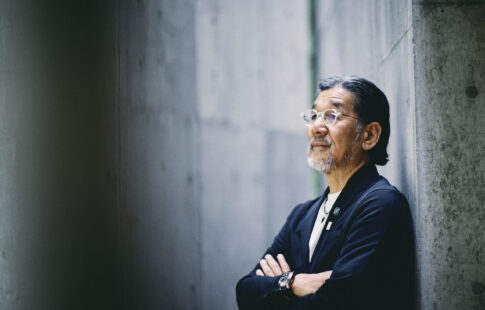
目次It all started with the worst MC of his lifeThe reality of being left out of information Issues highlighted […]
2025.07.08
目次It all started with the worst MC of his lifeThe reality of being left out of information Issues highlighted […]
2025.07.08
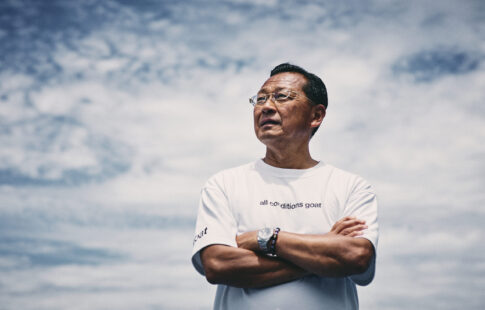
目次“An charismatic person appears…” Reforms to make athletes’ dreams come trueHakone or the w […]
2025.07.08
目次“An charismatic person appears…” Reforms to make athletes’ dreams come trueHakone or the w […]